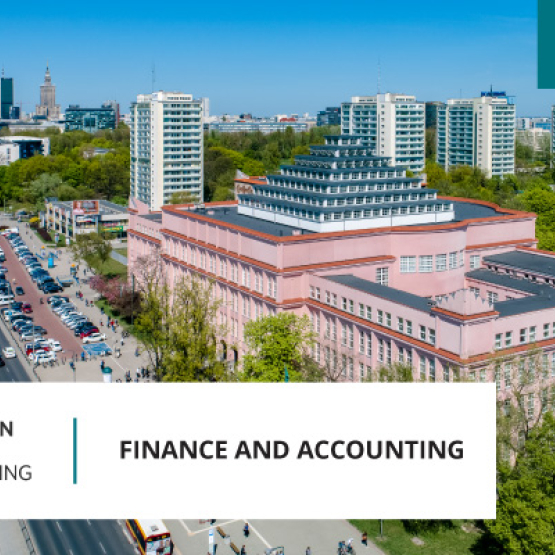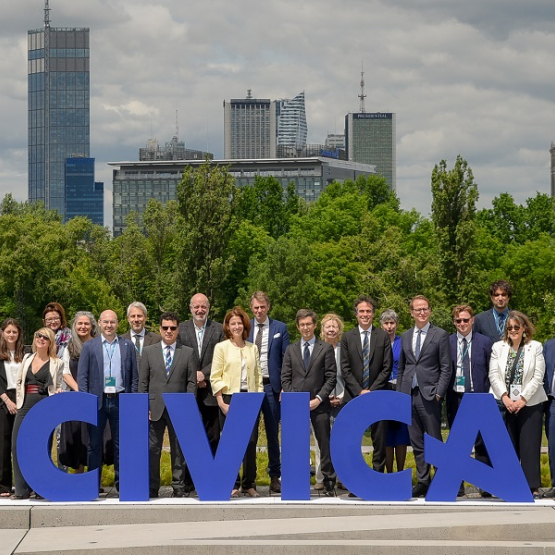
There’s a lot of discussion these days about how to make Polish science more integrated into the international arena. This was the main theme of the conference “Transnational Science Cooperation: Fostering Collaborative Research in Europe and Poland,” organized by the National Centre for Research and Development (NCBR) and the National Agency for Academic Exchange (NAWA) at the NCBR office in Brussels. The final session, “Empowering R&I Collaboration in Europe. A New ERA in Research Management,” organized by the PolSCA PAN Office in Brussels, also created space to discuss the role of professional staff in general, and research managers and administrators (RMA) in particular.
The session highlighted just how crucial research managers, administrators, and project support staff are to the Polish and European research ecosystem, and the broader research management system. It was widely acknowledged at the conference that these professionals are an essential and inherent part of making this ecosystem function. This is reflected in the new ERA (European Research Area) policy agenda for 2025–2027, which includes dedicated actions – such as Action 1 – focused on strengthening the professional development, recognition, and professionalization of research managers across Europe. There’s also the well-established network of European research managers and administrators, EARMA (European Association of Research Managers and Administrators).
In the Polish context, the identity of the RMA (Research Manager and Administrator) is still emerging and, for now, remains largely aspirational. University staff are divided into ‘academic teachers’ and ‘non-academic employees’, with RMA falling into the broad category of administrative workers. It’s a big leap from the starting point of an ‘administrative staff’ to the title of research or project manager, which sounds much more empowering and proactive.
This creates a kind of vicious circle. Some researchers do take on project activities, but they often encounter administrative barriers and (some of them) complain about it. Meanwhile, administrative staff are swamped with their daily tasks, which are at once repetitive and unpredictable (think: “putting out fires” and last-minute requests). Their work is also highly varied – they must constantly learn new regulations for old and new calls for proposal and acquire a whole range of new skills: open data, open science, sustainability issues, and so on.
On top of this, there are specific structural factors: at many universities, academic staff can receive awards for securing project funding, but “non-academic” staff cannot. One could argue that project office staff shouldn’t get awards for simply doing their job, while academics don’t have “securing research funding” written into their contracts. But by that logic, academics do receive awards or rector’s grants for high-impact publications, even though publishing is part of their core duties; so what is possible for the academic is not necessary possible for a RMA. But there is another interlinked issue: let’s imagine, that RMA were to get awards for winning new projects, then perhaps student office staff should also get awards for handling more students. The vicious circle just keeps spinning, and I believe that this remains a big structural and systemic challenge that HEIs need to face.
But let’s end on a positive note, with four optimistic conclusions:
1. The role of RMAs in research and development is fundamental. This is already recognized in Europe, so there’s hope that this inspiration will be noticed in Poland, and at our own university.
2. There are already strong, active RMA networks in the EU and worldwide. So, there are plenty of partners to collaborate with as we build this new profession at SGH, and in Poland
3. A new player has appeared on the Polish NGO scene: PolARMA – the Polish Association of Research Managers and Administrators. The name is much simpler in English, mostly because it’s hard to find a neat, accurate Polish equivalent for RMA. Even though PolARMA is just a couple of weeks old, it received a very positive response at the panel and has already attracted offers of support. PolARMA will collaborate with the Project Section of the Forum for Academic Administrators, and both genealogies are intertwined. PolARMA is also based at SGH, and members of FAA who work at SGH are on its board: Lidia Tomaszewska is Vice President of PolARMA, and I chair the Audit Committee.
4. Finally, if Polish RMAs working at universities manage to gain greater recognition and agency, this could have a positive benchmarking effect on other groups within academic administration.
This is what I sincerely wish for all Polish RMAs!

Published in cooperation with Regional Initiative of Excellence and Ministry of Science and Higher Education. Co-financed by the Minister of Science and Higher Education under the programme Regional Initiative of Excellence.
habilitated doctor Katarzyna Górak-Sosnowska, professor at SGH, head of Middle East and Central Asia Unit, Institute of International Studies, Collegium of Socio-Economics, SGH Warsaw School of Economics



